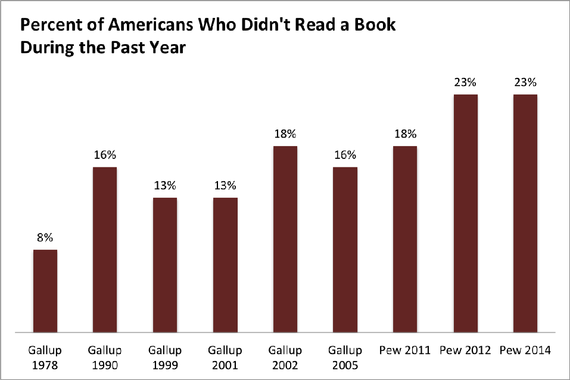
by admin
For Houston children, I know how to read books are just the start of a love of literacy that will benefit your child all through life. Whether you buy more books of your own, borrow them from your local library or get them on loan from friends, putting books in front of your children is the key.
Here are some budget friendly ways to add more books to your child’s home library:
– refresh the books in your home by hosting a book swap with family/friends;
– ask family/friends to give books as gifts for special occasions; or
– look for gently used books at yard sales, Goodwill, library sales, etc.
Most local libraries have children’s sections and many also offer free story hours for little ones. (You can find the public library nearest you here.) Visit the library and let your child pick some books to take home.
Remember to keep books where children can reach them and look at them on their own. A basket on the floor or a low shelf works well.
Read aloud to your children every day and don’t forget to let your child see you reading on your own. Be a reading role model!

by admin
The vast mass of knowledge in the world can only be gained by reading, and if you want your children to be smart, they have to acquire a love for reading. The love of reading has so many benefits. You can develop this reading habit in your children in as early as their first few months by reading to them.
Many studies have demonstrated that reading to children has many positive effects.
For example, a study was made in Rhode Island Hospital to compare two groups of eight months old – one group was read to often as babies, while the other was not. It was shown that those who were read to have their “receptive” vocabularies (number of words they understand) increased 40 per cent since babyhood, while the non-reading group increased by only 16 per cent.
Indeed, reading to your children is one of the most effective way of building the “language” neural connections in their growing brains.
When your read with your child, he derives these benefits:
- Reading to your kid makes you bond with him, and this gives your child a sense of intimacy and well-being. This feeling of intimacy will not only make your child feel close to you, the feeling of being loved and getting attention also helps him to grow smart.
- The intimacy of reading to your kid is such a pleasurable experience to him that he will have a positive attitude towards reading as he grows up.
- It calms your child, especially when he is fretful and restless.
- It promotes increased communication between you and your child.
- Preschool children who are exposed to language by hearing words that are read to him and in conversation tend to do well in school.
- Many studies show that students who love learning and do well in school were exposed to reading before preschool.
- Your baby learns early the basics of reading a book, that words represent sounds and concepts, words are read from left to write, and stories continue when you flip the page.
- It promotes longer attention span, which is an important skill for your kid to be able to concentrate.
- It builds listening skills and imagination.
- Your young child learns about colors, shapes, numbers, and letters, while your older child discovers an expanding chain of knowledge. His interest in cars, for example, will expand to his interest in trucks, and other transportation like planes and rockets, and soon he will be reading about outer space, science and technology, and so forth.
- A study published in Perspectives on Psychological Science in January 2013 concluded that “reading to a child in an interactive style raises his or her IQ by over 6 points.”
- Books teach your child thinking skills early. When you read to your child, he learns to understand cause and effect, he learns to exercise logic, as well as think in abstract terms. He learns the consequences of actions, and the basics of what is right and wrong.
- Books teach your child about relationships, situations, personalities, and what is good and what is bad in the world he lives in. Fantasy books provide material for his imagination and free play. Fairy tales fascinate your kid, and help him distinguish between what is real and what is not.
- When your child reaches a new stage in his growth, or experiences a new and unfamiliar situation, reading to your child about a story relevant to his new experience can relieve his anxiety and help him cope. For example, if your child is stressed about his first day in school, or about moving to a new location, you can read a book to him that shows that these should not be painful experiences.
- Your child learns early that reading is fun and not a chore. When your child grows up, you will not be stressed about getting him to read, as reading has become, for him, a pleasurable habit.

by admin
The number of American children who say they love reading books for fun has dropped almost 10% in the last four years, according to a US study, with children citing the pressure of schoolwork and other distractions.
The survey of 2,558 US parents and children, carried out for children’s publisher Scholastic and managed by YouGov, found that only 51% of children said they love or like reading books for fun, compared to 58% in 2012, and 60% in 2010. According to the report, in 2014 37% of children said they like reading a little, and 12% said they did not like it at all.
Researchers have found a sharp decline in reading enjoyment after the age of eight. Sixty-two percent of children between six and eight say they either love or like reading books for fun, but this percentage drops to just 46% for children between the ages of nine to 11, with the figure at 49% for 12-14-year olds, and 46% again for 15-17-year-olds. “Reading enjoyment declines sharply after age eight,” reported the publisher.
“I do like reading, but it’s not at the top of things I like to do,” said one 12-year-old boy, responding to the survey. An 11-year-old girl told researchers: “In second and third grade, I read above my grade level and I felt really proud of that. But then the books got bigger and bigger, and it got more intimidating.”
The fifth edition of the biannual Kids and Family Reading Report found more than four in 10 children (44%) said they like reading more now that they are older, with nearly three in 10 (29%) – especially boys (33%, compared to 24% of girls) – liking reading more when they were younger. Sixty per cent of the children who enjoyed reading more when they were younger put this down to the fact there are “so many other things that I now enjoy more than reading”, and 47% blamed the fact that “I have to read so much for school that I just don’t feel like reading for fun”, with others citing the fact they now have to read on their own, rather than being read to.
Scholastic also surveyed the parents of children between the ages of zero and five for the first time this year in an attempt to discover what made children frequent readers. The report found that a six to 11-year-old child is more likely to be a frequent reader if they are currently read aloud to at home, if they were also read aloud to five to seven days a week before starting nursery, and if they are less likely to use a computer for fun.
According to the report, 54% of children up to the age of five are read to at home five to seven days at week, with this declining to 34% of six to eight-year-olds, and 17% of nine to 11-year-olds. But 40% of six to 11-year-olds who are not read to told researchers they wish their parents had continued reading aloud to them.
Overall, 51% of children aged six to 17 were reading a book for fun when surveyed. But three quarters of parents surveyed said they wished their child would read more books for fun, while 71% agreed that “I wish my child would do more things that did not involve screen time”.
“Our research shows that providing encouragement and time both in school and at home for children of all ages to enjoy books they choose to read will help them discover the power and joy of reading,” said Scholastic’s chief academic officer Francie Alexander. “These tactics will also help to motivate kids to read more books, which will improve their skills and open a world of possibilities for them in the future.”

by admin
There are a number of things which we, as parents, can do to encourage our children to become good readers.Getting children reading is about always finding new opportunities for them to read, or for you to read to them. One of the main reasons children don’t read more is because they cannot find books they like to read. Help your children find books they love and you are on your way to getting your children reading more.
Motivate your children to read by setting up a reading log or trying this bingo reading activity. Help your children to really understand and engage with books, making connections with the characters, situations and settings. This will increase their enjoyment of books making it all the more likely that they will voluntarily pick up the next book.
Don’t forget to be a good role model also by being seen to read yourself. And do continue to read aloud to your children. Up until the age of 13 or 14 years old children listen on a higher level than they can read. So when you read aloud to children below this age you can read stories with a level of complexity and interest which they would not be able to read on their own.

by admin
You may wonder about the benefits of reading to your baby. An infant won’t understand everything you’re doing or why. But you wouldn’t wait until your child could understand what you were saying before you started speaking to him or her, right? Nor would you bypass lullabies until your baby could carry a tune or wait until he or she could shake a rattle before you offered any toys.
Reading aloud to your baby is a wonderful shared activity you can continue for years to come — and it’s an important form of stimulation.
Reading aloud:
- teaches a baby about communication
- introduces concepts such as numbers, letters, colors, and shapes in a fun way
- builds listening, memory, and vocabulary skills
- gives babies information about the world around them
Believe it or not, by the time babies reach their first birthday they will have learned all the sounds needed to speak their native language. The more stories you read aloud, the more words your child will be exposed to and the better he or she will be able to talk.
Hearing words helps to build a rich network of words in a baby’s brain. Kids whose parents frequently talk/read to them know more words by age 2 than children who have not been read to. And kids who are read to during their early years are more likely to learn to read at the right time.
When you read, your child hears you using many different emotions and expressive sounds, which fosters social and emotional development. Reading also invites your baby to look, point, touch, and answer questions — all of which promote social development and thinking skills. And your baby improves language skills by imitating sounds, recognizing pictures, and learning words.
But perhaps the most important reason to read aloud is that it makes a connection between the things your baby loves the most — your voice and closeness to you — and books. Spending time reading to your baby shows that reading is a skill worth learning. And, if infants and children are read to often with joy, excitement, and closeness, they begin to associate books with happiness — and budding readers are created





